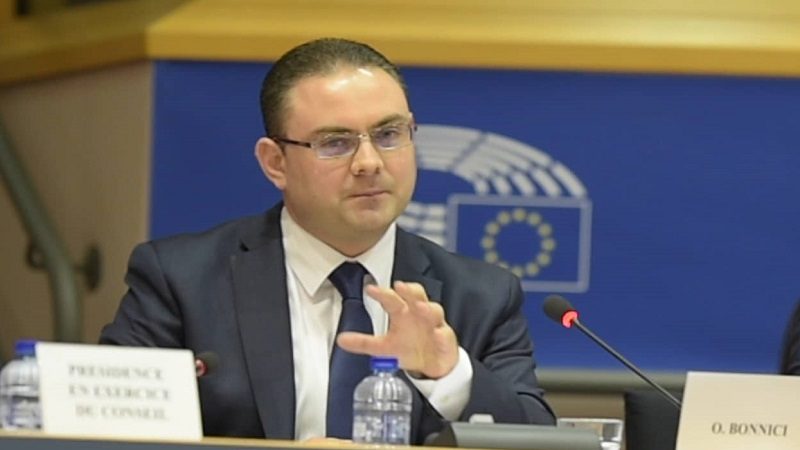As evidenced by justice minister Owen Bonnici’s speech to MEPs discussing a rule of law report, the reply of the Maltese authorities has become a standard litany and the sessions pitting MEPs against the Maltese government becoming a standard ritual.
The government tactic in the face of criticism is based on repeating the same message; highlighting the trust enjoyed by government, chronicling the reforms made by government upon being elected and harping on the fact that there are pending inquiries on the issues raised in the MEP report.
This is all wrapped up with tweets aimed at local audiences expressing a willingness to engage with MEPs when in reality there exists no meaningful dialogue on what really is at stake.
What Bonnici did not say is that none of the inquiries he referred to were commenced by the police on their own initiative and that these were triggered either by the former leader of the opposition or as a reaction to the media spectacle in front of Pilatus bank when a bank official was filmed carrying out a suit case while the police commissioner was eating rabbit.
Neither does Bonnici address the problem that the Whistleblower Act as it stands today does not cater for those with information which could be damning for the government of the day as is the case with Jonathan Ferris.
While Bonnici is right in saying that whistleblowers’ status is normally given to someone who is ready to provide the information before being granted protection, Malta lacks an independent judicial body to assess these applications.
In reality defending dodgy politicians in the aftermath of an execution of a journalist whose sons are present in front of you, is a lose-lose situation for government in international fora.
So the choice is either making a fool of yourself as Etienne Grech did at the Council of Europe or retaining composure by repeating the same mantra aimed mainly for local consumption as Bonnici did in front of MEPs.
Bonnici did add a new twist by harping on “consensus between the Prime Minister and the Opposition leader that there is no serious risk of rule of law or the deterioration of European values in Malta.”
It is unclear to what exactly Bonnici was referring to as the opposition led by Adrian Delia has been consistently critical of government’s lack of action on the main points of the MEP report.
One suspects that craftily Bonnici is trying to drive a wedge between zealous MEPs who would like to invoke Article 7 with regards to Malta – which would effectively strip Malta of its voting rights and the leader of the opposition who has no choice but to oppose such a national humiliation.
PN MEP David Casa has made it clear that he is against the nuclear bomb option. In reality judging by the slow pace of EU action with regards to Poland and Hungary the prospect of the Commission invoking Article 7 is remote. But nonetheless any threats of repercussions on Malta represent an opportunity for retrenchment for Labour.
Sure enough some Maltese did vote for the EU as a guarantee for fundamental values, but a larger segment voted to join the bloc for concrete financial benefits. Talk of Article 7 is bound to make these people uneasy.
While government is to blame for leading us to this situation following Prime Minister Joaseph Muscat’s refusal to sack his right-hand men Keith Schembri and Konrad Mizzi, many would not be elated to see Malta being penalised for this.
This is exactly why those MEPs scrutinising Malta should have an endgame in mind. The report itself suggests a meaningful dialogue between the European Commission and Malta to address the problems mentioned in the report.
But with the government ignoring the main demand of the report, which was the resignation of Konrad Mizzi and Keith Schembri, the risk is that of the dialogue turning in to a long drawn exercise in institutional tweaking.
Moreover unlike the European Parliament the EU Commission is bound to be more sensitive to the national sovereignty of member states and is unlikely to demand the resignation of individuals as this would open a big institutional can of worms.
That is why ultimately, what counts is the voice of the Maltese in Malta.
While Bonnici’s selective invocation of surveys showing a high trust in the government and police, while omitting the part showing deep concern on the rule of law, is to say the least cynical, it contains a grain of political truth.
Only when a chunk of Labour voters start expressing doubts on governance will meaningful change take place.
And judging by the scale of latest revelations on the hospital privatisation, something has to give. But to get there the opposition and other government critics need to rediscover the art of political persuasion.
Ultimately this also depends on how serious they are in their calls to reform the system in a way that any future Nationalist government would not benefit from the same culture of impunity which reigns today.












